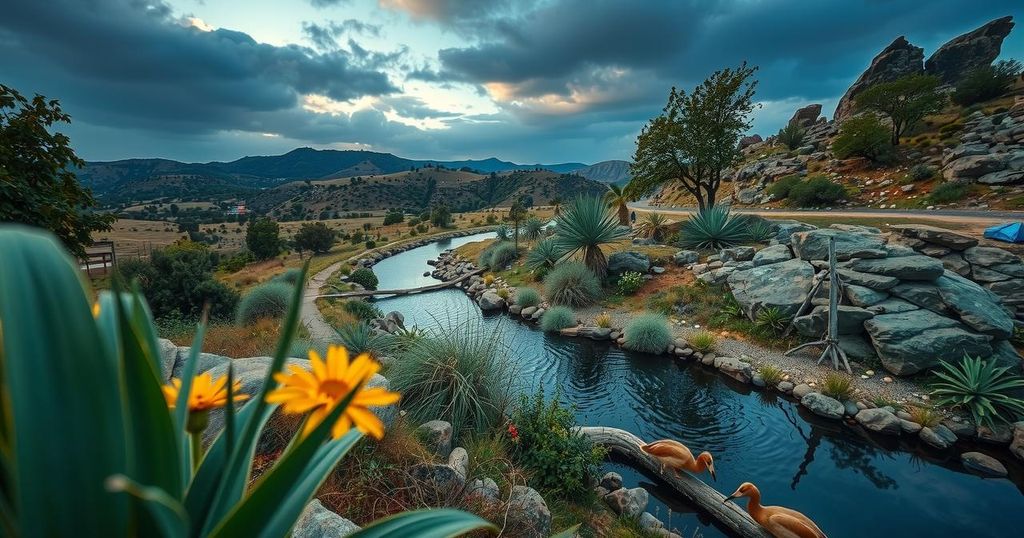The Lesotho Highlands, essential for Gauteng’s water supply via the LHWP, face significant risks due to wetland degradation. Studies show a loss of 21% to 24% of wetlands in critical catchments, threatening water security. Factors include uncontrolled grazing and increased accessibility due to LHWP developments. Current interventions are under scrutiny for their effectiveness, necessitating comprehensive studies on wetland health and sedimentation issues impacting dam capacity.
The Lesotho Highlands, crucial for water supply to Gauteng through the Lesotho Highlands Water Project (LHWP), are facing significant challenges due to wetland degradation. These wetlands play a vital role in water regulation and sustainability of the LHWP, yet studies indicate that between 21% to 24% of wetlands in key catchments were lost between 1995 and 2014. This alarming trend poses a serious threat to water security in an already water-scarce region. According to soil science expert Johan van Tol, deteriorating montane and alpine wetlands in the Maloti-Drakensberg region are among the gravest concerns for water safety in Southern Africa. Lesotho ecologist Peter Chatanga highlights that loss of wetlands leads to increased sedimentation in the dams, adversely impacting the LHWP’s efficiency. Wetlands, chiefly palustrine in nature, slow water flow, help in soil erosion control, and support diverse vegetation, thus stabilizing the water systems. Among the contributing factors to wetland degradation are unrestricted communal grazing and improved accessibility resulting from development linked to the LHWP, which, while beneficial economically, has intensified human impact on these wetlands. The presence of Sloggett’s ice rat, an indicator species of wetland infestation, has exacerbated the problem further. Efforts to manage and rehabilitate wetlands have been questioned, particularly following the absence of extensive environmental assessments prior to the construction of the Katse Dam. Individuals involved in wetland restoration have cited failures in past interventions aiming to control erosion and restore wetland health due to inadequate understanding of existing issues. Experts are urging for comprehensive baseline studies to effectively address the underlying causes of wetland degradation. Sedimentation in the reservoirs is a pressing concern, with the LHDA reporting increasing sediment levels, complicating water management efforts. Despite some experts asserting that current sedimentation levels are manageable, the potential risks to infrastructure and water supply require serious attention going forward.
The Lesotho Highlands region plays a critical role in supplying water to Gauteng via the Lesotho Highlands Water Project (LHWP). The integrity of the wetlands in this area is essential for regulating water flow and mitigating sediment build-up in the dams. However, significant degradation and loss of these wetlands have been observed, raising alarms regarding water security and environmental sustainability in Southern Africa.
The deterioration of wetlands in the Lesotho Highlands presents a multifaceted challenge to water management for Gauteng, highlighting the urgent need for focused interventions and comprehensive studies on wetland dynamics. Effective solutions must address both the immediate impacts of human activity and the long-term sustainability of the region’s water resources. The ongoing sedimentation in reservoirs further complicates the situation, warranting strategic planning and immediate action to safeguard the future of the LHWP and its critical water supply.
Original Source: allafrica.com







